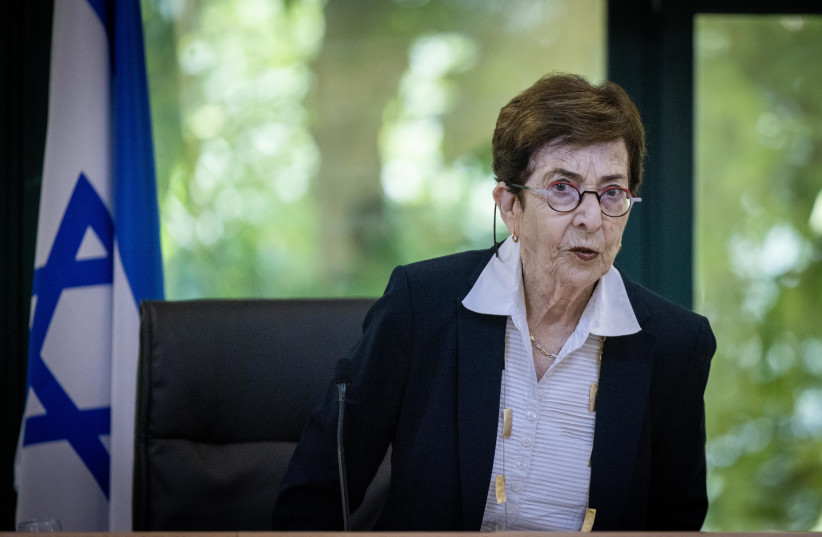Former National Security Council Chief Meir Ben-Shabbat on Sunday told the Mount Meron disaster Commission of Inquiry that his staff’s oversight role was “minimal” and that “specific professional experts” needed to be in charge.
Much of the year-long inquiry has revolved around failures by the engineers, religious affairs and police officials involved to ensure that the structures around Meron were safe and the site was not overwhelmed.
But now the inquiry is looking at top officials who had a potentially wide view on problems leading into the disaster, with the inquiry recently hearing from former public security minister Amir Ohana, former interior minister Arye Deri, and due to hear next week from former prime minister and opposition leader Benjamin Netanyahu.
In that spirit, commission head and retired judge Devorah Berliner and commission member Maj.-Gen. (ret.) Shlomo Yanai leaned hard on Ben-Shabbat that he could have prevented the disaster on Lag Ba’omer in spring 2021 when 45 people were trampled to death.
What did NSC head Ben Shabbat claim?

Initially, Ben-Shabbat tried to give the simple answer that the NSC never dealt with such domestic micro issues, and was only involved in macro national security ones.
He said that the council had “no expertise in public safety” for religious ceremonies on mountains or anything remotely similar to such an event.
Further, he said the NSC had no authority over such things, and was not involved in the planning.
However, Berliner and Yanai challenged him, noting transcripts and testimony by others that he and council representatives had been present at planning meetings and supervised aspects of the interactions between the different government players involved.
Was there a precedent?
Also, Yanai noted that the NSC had gotten deeply involved in managing the COVID-19 crisis even at the micro level, a health issue which was not a classic foreign threat and which showed that the council could deal with important domestic safety issues like Lag Ba’omer at Meron.
At this point, Ben-Shabbat acknowledged NSC involvement but said that the involvement was limited to making sure agencies like the Health Ministry and the police were communicating and reaching understandings about how to go forward.
He said the council did not get into the details of the understandings that were reached.
Moreover, he said the NSC was involved in managing the coronavirus crisis because this was a macro issue that impacted all areas of life.
Ben-Shabbat agreed that the council weighed in on the handling of coronavirus at Meron both in 2020 and 2021.
In contrast, as bad as the disaster was, he implied that it was not an issue that impacted the entire country at the same time in the way corona did and would not have been an appropriate issue for the NSC to dig deeper into.
Further, he said that Netanyahu as prime minister directly assigned them to handle corona issues and he did not do so regarding Meron.
Observers have credited the committee’s interim recommendations with facilitating a safer Lag Ba’omer this past May.
